Introduction
Continuous monitoring and assessments of each portfolio are carried out by our investment managers in line with risk profiling. Furthermore, in order to ensure that the ongoing management is in accordance with our expectations, each fund also undergoes an examination to see whether any revisions to the plan have been adopted.
To the best of our abilities, we also keep an eye out for any deviations from the performance expectations that are outlined within the strategy and compared to the peers. This is done to ensure that the underlying managers do not engage in any actions that might potentially hinder their capacity to deliver continued returns that are adequate. Furthermore, on a regular basis, our investment management staff will carry out a more formal review examination. By investing in asset classes that we believe will appreciate over the medium to long term and withdrawing from those that we anticipate will drop, the process of asset allocation is designed to capture more macroeconomic events. This is accomplished by investing in asset classes that we predict will appreciate. In line with the ever-changing economic cycles and financial markets, our investment management team manages the asset allocation of the portfolio in a consistent manner. This ensures that the various asset classes, including as cash, bonds, and shares, are distributed in an appropriate manner.
On the other hand, the investment mandate and the risk profile that corresponds to it guarantee that this process is managed in a consistent manner. It is the most efficient method for maintaining the performance of portfolios during particular parts of the economic cycle that asset allocation is the most successful technique.

There is a wide variety of risk appetites that may be accommodated by our service, which is a collection of pre-designed portfolios that are customized to meet those needs. An evaluation of your goals will be performed by your personal adviser in order to determine which of the available options is the most appropriate for you. The extra information that you require concerning the past performance of each portfolio as well as its current structure will be provided to you by your adviser.
Cryptocurrencies
In spite of the fact that cryptocurrencies may in fact represent the subsequent big step in the growth of the internet, they also offer an alarming degree of complexity that makes it impossible to analyze the most current news flow and poses a problem for investors who are just starting out.
Recent articles have focused on the increase and subsequent decrease in the price of bitcoin, as well as the entrance of new cryptocurrencies into the market. Additionally, the stories have focused on the rising price of bitcoin. It is only natural for investors who have not yet made any investments in the bitcoin market to be uncertain about whether or not they should venture into the market at this time or whether or not they have missed the boat. One of the areas in which we are able to offer assistance is this one.
Access to cryptocurrency funds and portfolios that are systematically diversified and do not require any additional complexity is something that we provide and provide assistance with. The process of navigating this fascinating new asset class is made easier for inexperienced investors by the existence of a crypto fund, which is a simplified version of traditional funds. As an alternative to you personally acquiring and trading cryptocurrencies, a cryptocurrency fund would acquire and trade them on your behalf. This is in contrast to the situation in which you would do so.
Not only will our portfolio managers and traders decide which initial coin offerings (ICOs) to invest in and which ones to avoid, but they will also decide which currencies to purchase and sell. Your investment will be guaranteed to create earnings thanks to their assurances. Consequently, they are entitled to a portion of the profits as management and performance fees in exchange for their services.
Equities
When compared to more secure investments, such as bank accounts and bonds, the performance of equity investments has historically been superior. Equity investments have the potential to be the principal driver of growth in your investment portfolio. Investing in stocks, on the other hand, exposes you to the possibility of losing all or a portion of your wealth. When examining the possibility of investing in stocks and the many different types that are accessible, it is essential to take extreme caution because shares are regarded as the asset class that carries the highest level of risk. It is a well-known fact that direct investments in stocks can be risky due to the fact that they are dependent on the success of a relatively limited number of firms.
The reason we carry out our research and perform our due diligence is because of this, and it is also the reason why acquiring stocks through an investment fund that is managed by our firm is substantially safer. This is because we invest in a wide variety of shares from a variety of companies. In order to accomplish the goals of diversification or risk distribution, equity funds often focus their assets on a wide range of nations, regions, sectors, and investing techniques. There are many different types of equity funds, and each one has its own set of features and degree of risk that are exclusive to itself.
Growth in capital and dividends are the two components that make up the return on equity investments. Dividend payments, which are normally issued twice a year, are the means by which the earnings of the firm are dispersed. The dividend payout is greater and the firm is more lucrative, thus you are more likely to get dividends from larger, more established companies. This is because the dividend payout itself is larger. Larger corporations are more likely to spend their earnings in order to grow their operations, which means that smaller companies are less likely to pay dividends to their shareholders. Nevertheless, if a less successful firm goes on to attain success, the value of your shares can increase. There is the potential for a profit to be made by selling your shares at a price that is higher than the price that you paid for them. Consequently, this results in the expansion of capital, which is the initial investment.
The level of risk that an individual investor is willing to take will determine how much of a fluctuation any structured investment program will experience. A wide range of derivatives and fixed income markets are included in the category of structured products. It is for this reason that structured investment programs are built in such a way as to properly cater to the requirements of the investor
Investors who are more risk tolerant will have a bigger exposure to equity and derivatives markets, while investors who are more conservative would have a greater exposure to fixed income markets. Structured products are widely used as an alternative to direct investments or to allocate assets in a portfolio against risk exposure. This is another reason why structured products are so popular.
The Commodities
The commodities that are used in everyday life, such as gold, silver, and oil, have a tremendous impact on that existence. As a result of their persistent existence in the modern world, several investors have recognized them as a reliable component of a portfolio that represents a comprehensive approach to investment. It is possible that incorporating commodities into your investing plan might be beneficial, depending on the financial goals you have set for yourself and the investments you already have now in your portfolio. We provide a wide range of goods to consumers in the industrial and financial sectors all around the world for their use. As a reliable and competitive business partner, we have earned a reputation for excellence. As our start-up firms grow and evolve into global leaders, it is our obligation to give them with the necessary assistance they require to fulfill their potential. The consistent commitment that we have shown to the development of companies and the following trading procedure has been the driving force behind our success in the commodities market.
It is possible to consider investing in commodities through a variety of different channels. The acquisition of varied quantities of tangible basic commodities, such as precious metal bullion, is one of the solutions that can be considered. On top of that, investors have the option of investing through exchange-traded products (ETPs) or futures contracts that directly track a certain commodities index. Because these investments are extremely difficult to understand and highly volatile, they are normally only suggested for investors who have a high level of expertise. There are a number of factors that might cause fluctuations in the pricing of certain commodities. These include supply and demand, inflation, currency rates, and the overall health of the economy.
Commodity prices have been considerably affected by the growing demand that has come from the deployment of large global infrastructure efforts in recent years. These initiatives have been implemented in recent years. Because of the rise in the prices of commodities, the equity markets of firms operating in industries that are closely tied to one another have, on the whole, benefited from the situation.
Obtaining exposure to commodities may also be accomplished through the use of mutual funds that invest in firms that are also connected to commodities. For instance, a fund that invests in oil and gas would have securities that were issued by companies that undertake activities related to the exploration, processing, storage, and distribution of energy. We will make it possible for you to gain an understanding of the procedure involved in entering the commodities market and beginning trading as soon as possible. Consequently, this will result in the diversification of your investment portfolio, which will allow you to protect your assets and accomplish your financial goals.

We work to maximize your returns while simultaneously minimizing the risk that is connected with the investment plan you have chosen or implemented. For the purpose of making well-informed investment decisions, your personal adviser will provide assistance in monitoring commodity indexes and applying the information obtained from this monitoring.
Financial Planning
The formulation of a financial plan gives a client the ability to evaluate their strategy for retirement and determine the projection of their existing assets and resources into future income in order to accomplish their goals for the future. The cornerstone of any activity that is effective is a plan that has been carefully devised.
As an independent financial adviser, our duty in your investment planning is to assist you in determining your goals and objectives, and to engage with you in the building and oversight of a portfolio that is compatible with the investing principles of wealth allocation. To guarantee that our interests are aligned, our fee structure was developed with that goal in mind. Our fee structure is designed to incentivize success, which places a president in a position that is in contrast to the deal fee model.
Regardless of how you believe an effective investment plan should be implemented; we are able to assist you in putting it into action. We will establish the income and activities that are necessary at each step, and along with our rigorous investment management, financial forecasts, income and tax techniques, and a well-crafted strategy, you will be able to achieve the goals that you have set for yourself.
We provide a wide range of products that are suitable for any investing strategy, whether you are looking to generate income or preserve money. Determining the method in which your assets are invested and making adjustments as required are both important steps. Additionally, depending on the particulars of your situation, you may be able to keep track of your assets by combining various plans into a single one. In each and every one of our initiatives, we exhibit transparency, forthrightness, and accountability. There will never be a time when you are not informed about the whereabouts and performance of your money. Additionally, we are of the idea that communication is of similar importance when it comes to investment. Our work is something that we are very proud of, and we are excited to show it to you.

We have a service-oriented and customer-focused culture that is deeply established in our organization. Our group is committed to boosting the financial well-being of our customers and providing them with the means to lead lives that are more satisfying. Our approach to investing is uncomplicated and involves direct participation. In order to design the most ideal investment portfolios for you, we depend on our own personal inquiry, our intuition, and the information that we have gathered over the course of our years of experience.
Retirement Planning
The supply of well-balanced assets, profit sharing, and secure investments are the sole components of our retirement plan services, which are entirely committed to these aspects. Oversight and compliance with regulatory requirements are important. The establishment of a fiduciary process that is Reiter-able, defendable, and recorded is something that we strive to do.
Our staff will aid in insuring that your committee adheres to the required fiduciary standards of care and complies with all regulating laws of ERISA. Investing is the major focus of our attention. We make sure that our strategic planning takes into account the most recent developments in asset analysis and investment fund performance monitoring. This is the case regardless of whether the investment plan is an established one or a new one.
On an annual basis, we do due diligence on hundreds of start-up firms and choose around two percent of them to be considered for investment. Following this, both our institutional investors and our individual investors are sent an invitation to choose the start-up businesses that have piqued their interest for the purpose of an investment. The minimum amount of money that an individual investor can afford to invest is generally $10,000, with the average investment amount being $30,000. We invest according to the same terms of investment that we use for our investors that we use for ourselves.


